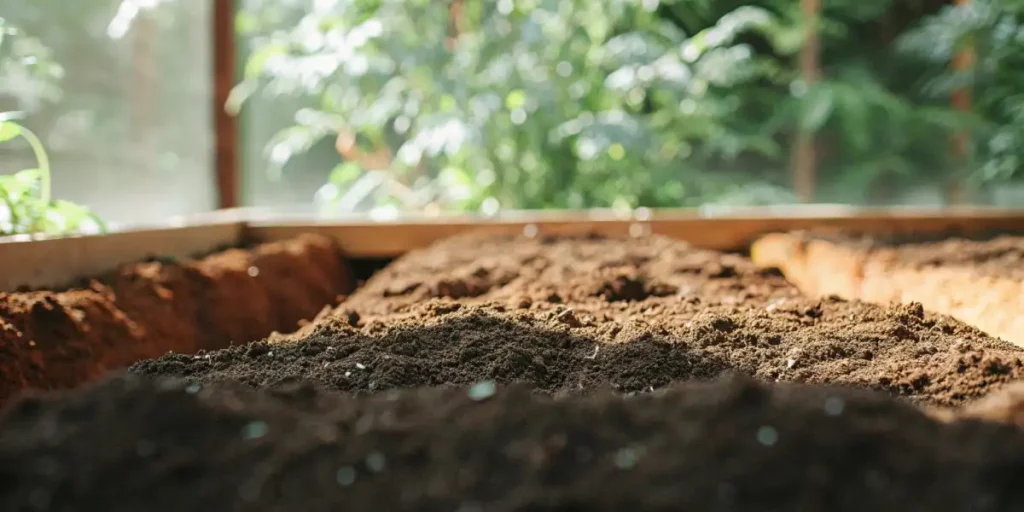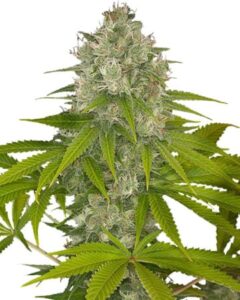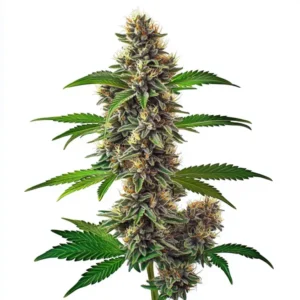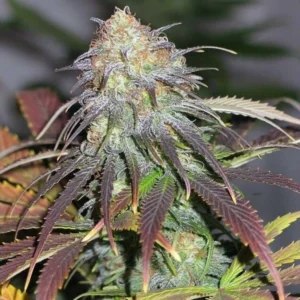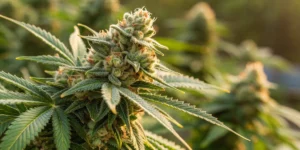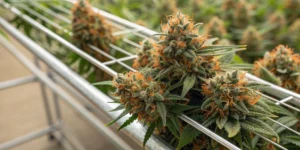Choosing the best soil for autoflowers can make a world of difference for your cannabis plants. Autoflowers are a unique type of cannabis plant that thrives in specific soil conditions. With the right soil, these plants can grow quickly and yield abundant buds. Whether you’re a first-time grower or a seasoned veteran, choosing the proper soil is essential.
When it comes to growing autoflowers, the soil you choose should be light, airy, and nutrient-rich. This type of soil ensures that the roots can spread easily, allowing for maximum growth and yield. A well-draining soil is essential, as it prevents root rot and other water-related issues. Finding the perfect balance is key to achieving healthy plants.
Recommended Strains
Painkiller XL CBD
|
|
CBD | 19% – 20% (Medium) |
|
|
Lineage | Respect 13 x Juanita la Lagrimosa |
|
|
Type | CBD Feminized |
|
|
Height | 4.59 ft | 1.4 m |
|
|
Yield | High |
|
|
Yield Indoor | 1.64 - 1.8 oz/ft² | 500 - 550 g/m² |
|
|
Yield Outdoor | 17.64 - 19.4 oz/plant | 500 - 550 g/plant |
|
|
Flowering Time | 8 - 9 weeks |
|
|
Phenotype | 25% Indica / 75% Sativa |
|
|
Effects | Focused, Relaxed |
|
|
Flavors | Candy, Citrus, Earthy, Fruity |
Blueberry
|
|
THC | 15% - 20% (Medium) |
|
|
Lineage | 1970's Original Blueberry |
|
|
Type | Feminized |
|
|
Height | 4.92 ft | 1.5 m |
|
|
Yield | High |
|
|
Yield Indoor | 1.64 oz/ft² | 500 g/m² |
|
|
Yield Outdoor | 19.4 oz/plant | 550 g/plant |
|
|
Flowering Time | 9 weeks |
|
|
Phenotype | 80% Indica / 20% Sativa |
|
|
Effects | Calming, Happy, Relaxed |
|
|
Flavors | Berry, Pine, Sweet |
Using the optimal soil mix for autoflower cannabis is all about knowing the needs of your plants. Autoflowers require a specific pH range, nutrient balance, and soil texture to thrive. Choosing a high-quality organic soil for autoflowering strains can significantly boost your plant’s growth and yield. Let’s dive into the specifics of what makes an ideal soil mix for these plants.
Key Components of the Best Soil for Autoflowers
The best soil for autoflowers contains several key components that work together to support healthy growth. A high-yield soil blend for autoflowers typically includes organic matter, aeration elements, and pH-balancing agents. These components create a thriving environment for your plants.
Organic matter, such as compost or worm castings, provides essential nutrients that autoflowers need to grow. Aeration elements like perlite or vermiculite ensure that the soil remains loose and well-drained. Finally, pH-balancing agents help maintain the ideal pH level for autoflower plants, typically between 6.0 and 7.0.
In addition to these components, the texture of the soil plays a significant role in plant health. The soil should be loose enough to allow roots to expand but dense enough to retain moisture and nutrients. A well-structured soil mix promotes root development, ensuring that your plants have the stability and nutrition they need to flourish.
Another key consideration when selecting soil is the presence of beneficial microbes. These microorganisms aid in the breakdown of organic matter, making nutrients more accessible to the plants. Incorporating mycorrhizae or other microbial inoculants into your soil can enhance nutrient uptake, leading to healthier and more productive plants.
Importance of Nutrient-Rich Soil for Autoflower Growth
Nutrient-rich soil for autoflower growth is critical for achieving robust plants. Autoflowers have a short life cycle, and they need a consistent supply of nutrients to reach their full potential. Using soil that is rich in essential nutrients like nitrogen, phosphorus, and potassium can help your plants thrive.
Some growers prefer to use pre-fertilized soil mixes that contain all the necessary nutrients for the entire growth cycle. Others might choose to supplement their soil with additional fertilizers as needed. Both approaches can be effective, as long as the soil remains nutrient-rich throughout the plant’s life.
Besides to the primary macronutrients, micronutrients like calcium, magnesium, and sulfur are also important for autoflower growth. These elements support various physiological functions, contributing to stronger plants and more abundant yields. Ensuring a comprehensive nutrient profile in your soil mix is essential for optimal plant development.
Regular monitoring of soil nutrient levels can help you identify any deficiencies early on. By addressing nutrient gaps promptly, you can maintain the health and vigor of your autoflowers throughout their growth cycle. This proactive approach is key to maximizing yields and achieving the best results from your plants.
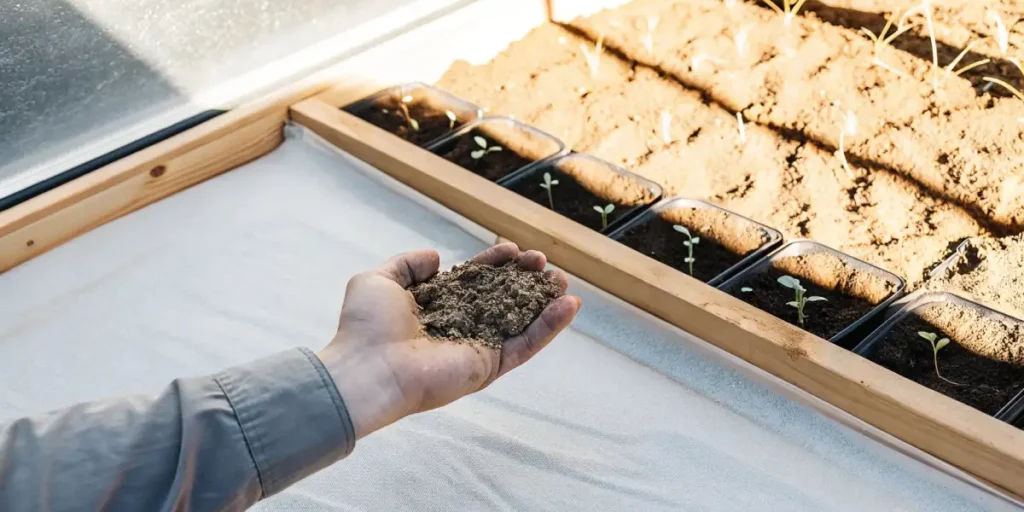
Creating the Optimal Soil Mix for Autoflower Cannabis
Creating the optimal soil mix for autoflower cannabis involves combining various ingredients to meet the specific needs of these plants. A typical mix might include peat moss, perlite, and a small amount of organic compost. This combination provides a balanced environment for roots to expand and absorb nutrients.
For those interested in a more hands-on approach, making your own soil mix allows you to control the exact composition. By experimenting with different ratios of organic matter, aeration elements, and pH-balancing agents, you can fine-tune your soil to suit the specific needs of your autoflowers.
Another approach to creating an optimal soil mix is to incorporate slow-release fertilizers. These products gradually release nutrients over time, providing a steady supply for your plants. This method reduces the need for frequent fertilization, simplifying your growing routine while ensuring consistent nutrient availability.
It’s also beneficial to consider the water retention capacity of your soil mix. While well-draining soil is essential, a mix that retains some moisture can prevent the plants from drying out too quickly. Balancing aeration and moisture retention is crucial for maintaining healthy root systems and promoting vigorous growth.
Best soil for autoflowers: top 3 strains and their ideal soil preferences
When selecting the best soil for autoflowers, it’s important to consider the specific strain you’re growing. Each strain may have slightly different soil preferences that can impact overall growth and yield. Here are three popular strains from Global Green Genetics and their ideal soil conditions.
The Blueberry Auto strain thrives in a nutrient-rich, well-draining soil. It benefits from a pH-balanced soil for autoflower plants, ensuring the roots can absorb nutrients effectively. A mix with 50% organic compost and 50% perlite works well for this strain.
The Northern Lights Auto prefers a soil mix that retains moisture without becoming waterlogged. A blend of organic matter, such as worm castings, and aeration materials like vermiculite can help achieve this balance. Aim for a slightly acidic to neutral pH to optimize growth.
Another popular strain, the White Widow Auto, is known for its resilience and adaptability. This strain performs well in soil that is both nutrient-rich and slightly acidic. A mix of 60% organic compost, 20% perlite, and 20% peat moss can provide the ideal conditions for robust growth.
Knowing the specific needs of each strain allows you to tailor your soil mix for optimal results. By adjusting the composition based on the strain’s preferences, you can enhance growth outcomes and achieve impressive yields from your autoflower plants.
Choosing the Best Organic Soil for Autoflowering Strains
Opting for the best organic soil for autoflowering strains can enhance the health and quality of your plants. Organic soils are free from synthetic chemicals, providing a natural environment for cannabis growth. These soils often contain beneficial microbes that support plant health.
When selecting organic soil, look for products that list specific organic ingredients. Common components include coconut coir, bat guano, and bone meal. These ingredients improve soil structure and provide essential nutrients, promoting vigorous growth and high yields.
Organic soils not only offer nutritional benefits but also promote environmental sustainability. By choosing organic options, you contribute to healthier ecosystems and reduce your ecological footprint. This holistic approach supports both plant health and environmental well-being.
Additionally, the best soil for autoflowers, especially organic mixes, can enhance the flavor and aroma profiles of your cannabis. The natural nutrients and beneficial microbes in these soils contribute to the development of terpenes, resulting in more flavorful and aromatic buds. This added benefit makes organic soils a popular choice among discerning growers.
PH-Balanced Soil for Autoflower Plants
Maintaining a pH-balanced soil for autoflower plants is essential for nutrient uptake. Autoflowers typically prefer a pH range between 6.0 and 7.0. Soil that falls outside this range can lead to nutrient lockout, where plants are unable to absorb essential nutrients.
To ensure your soil remains pH-balanced, consider using a pH meter or test kit to regularly check your soil’s pH levels. If adjustments are needed, products like lime or sulfur can help raise or lower pH levels, respectively.
It’s important to remember that pH levels can fluctuate over time due to watering, fertilization, and other environmental factors. Regular monitoring and adjustments are crucial to maintaining a stable pH environment, which supports optimal nutrient uptake and plant growth.
Creating a buffer in your soil mix can also help stabilize pH levels. Adding dolomite lime, for example, can act as a pH buffer, minimizing fluctuations and ensuring that your soil remains within the desired range. This proactive measure can prevent nutrient-related issues and promote healthy plant development.
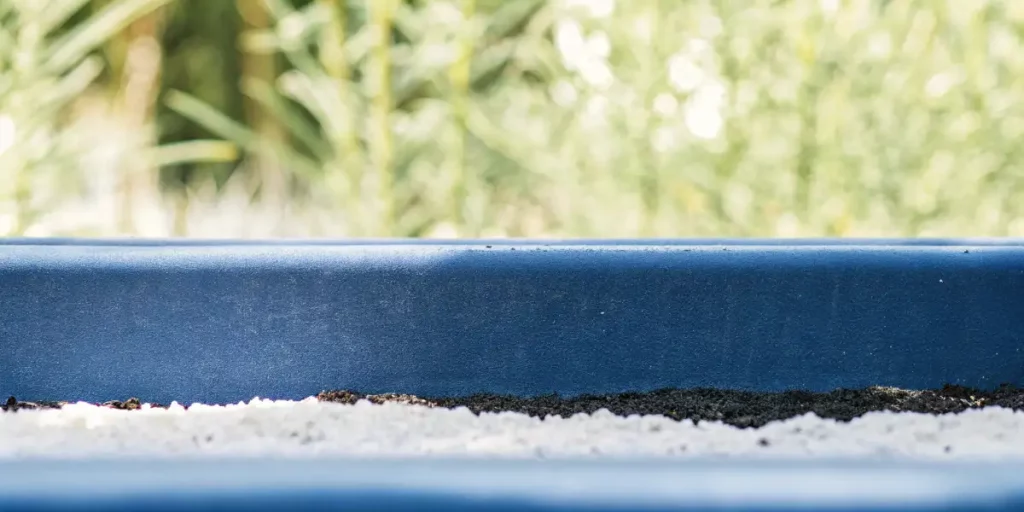
FAQs of best soil for autoflowers
What is the best soil for autoflowers?
The best soil for autoflowers is light, airy, and nutrient-rich. It should allow roots to expand easily, ensuring maximum growth. A well-draining soil prevents water-related issues like root rot. Combining organic matter with aeration elements like perlite creates an ideal environment.
Real-life examples include mixes with organic compost and perlite. Adjusting the ratios of these components based on plant response and growing conditions can help refine the soil for optimal growth and yield.
Furthermore, an ideal soil mix should promote a healthy microbial ecosystem. The presence of beneficial microbes enhances nutrient availability and supports plant resilience, contributing to overall plant health and productivity.
Investing time in selecting or crafting the best soil mix can pay off significantly in terms of plant performance and yield. By knowing the specific needs of your autoflowers, you can create a custom soil environment that maximizes their potential.
How do I create an optimal soil mix for autoflower cannabis?
Creating an optimal soil mix involves combining ingredients that meet the specific needs of autoflowers. A mix might include peat moss, perlite, and organic compost. This combination provides balanced nutrients, aeration, and drainage.
Experimenting with different ratios allows growers to fine-tune the soil composition. For example, a mix of 40% organic compost, 30% peat moss, and 30% perlite offers a strong balance, but adjustments can be made based on how plants respond.
Consider incorporating additional organic amendments like kelp meal or fish emulsion to enhance nutrient content. These natural additives can provide trace elements and growth hormones that boost plant vigor and resilience.
By taking a customized approach to soil mixing, you can address specific growth challenges and optimize conditions for your autoflowers. This degree of control enables you to adapt to changing needs and achieve the best possible outcomes for your plants.
Why the best soil for autoflowers needs to be nutrient-rich for optimal growth?
The best soil for autoflowers is nutrient-rich, which is crucial for their growth because these plants have a short life cycle and need consistent nutrients. Essential elements like nitrogen, phosphorus, and potassium support robust development and high yields.
Some growers use pre-fertilized soils, while others supplement with additional fertilizers. Both methods can be effective, provided the soil remains nutrient-rich throughout the plant’s life cycle.
Without adequate nutrients, autoflowers may exhibit stunted growth, reduced yields, and increased susceptibility to pests and diseases. Ensuring a steady nutrient supply is vital for maintaining plant health and achieving bountiful harvests.
It’s also important to tailor nutrient applications to the growth stage of the plants. For instance, higher nitrogen levels are beneficial during vegetative growth, while increased phosphorus and potassium support flowering and bud development.
What does pH-balanced soil mean?
PH-balanced soil maintains a specific acidity level, crucial for nutrient uptake. For autoflowers, the ideal pH range is between 6.0 and 7.0. Outside this range, plants might experience nutrient lockout, where they can’t absorb nutrients effectively.
Regularly testing soil pH with a meter or test kit and making adjustments as needed ensures that the soil remains within the optimal range, supporting healthy plant growth and maximizing yields.
Knowing the function of pH in nutrient availability helps growers make informed decisions about soil amendments and fertilization. By maintaining pH balance, you create an environment where nutrients are readily accessible to the plants.
Incorporating pH-adjusting materials into your soil mix, like sulfur for lowering pH or lime for raising it, can help maintain the optimal range. This proactive management supports robust plant growth and successful harvests.
Can homemade mixes be the best soil for autoflowers?
Yes, homemade soil can be tailored to meet autoflower needs. By mixing ingredients like organic compost, peat moss, and perlite, growers can create a blend that supports healthy growth. When done right, this method can help you achieve the best soil for autoflowers, allowing for full customization based on each plant’s specific conditions.
Homemade soil gives you control over the ingredients and their ratios. It requires some experimentation, but it can lead to a highly effective growing medium that supports robust autoflower growth and development.
Creating homemade soil also allows you to incorporate unique elements that may not be available in commercial mixes. For example, adding biochar can improve soil structure and microbial activity, enhancing overall plant health.
Ultimately, crafting your own soil mix offers the flexibility to adapt to specific growing conditions and plant needs. This personalized approach can yield impressive results and deepen your knowing of the growing process.

